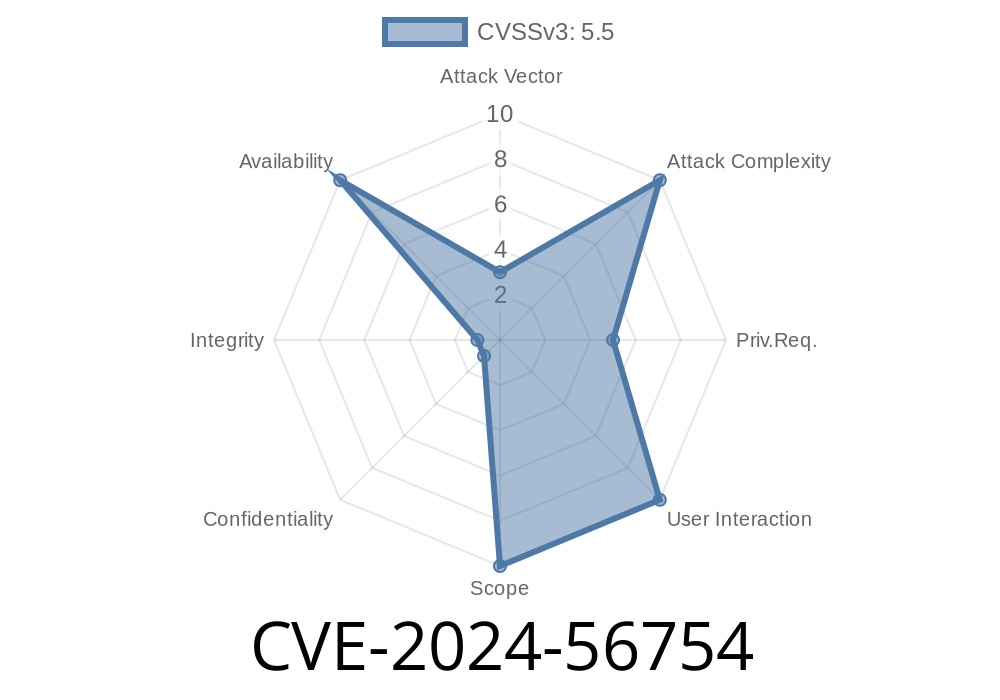In June 2024, a subtle but potentially disruptive vulnerability was discovered and fixed in the Linux kernel’s crypto framework—specifically, in the CAAM (Cryptographic Acceleration And Assurance Module) driver subsystem. This is now referenced as CVE-2024-56754. Below, you'll find a plain-English breakdown of the bug, how it was fixed, why it mattered, and what you should watch out for. We’ll keep the technical jargon to a minimum, but include the essentials (like code snippets) for those maintaining Linux-based systems.
What’s the Vulnerability?
In the Linux kernel, drivers often use a so-called *resource management* pattern: when a device (like a crypto module) is set up, its driver also registers “shutdown” or cleanup actions to ensure that, when the device detaches or the kernel module unloads, resources are properly released. The code for this in the CAAM driver looked mostly right, but a careful audit revealed a pointer type mismatch.
Specifically
- The CAAM driver used devm_add_action_or_reset() to register a shutdown function and passed a pointer to a struct caam_drv_private.
- The shutdown function itself, caam_qi_shutdown(), was expecting a struct device * instead—and cast the incoming argument as such.
- This mismatch meant an invalid pointer could be passed to the shutdown logic, causing skipped cleanups or even undefined behaviors.
In short: The kernel could “think” it had properly cleaned up after itself, but it really hadn’t. That’s a classic recipe for resource leaks or subtle driver bugs.
Here’s a simplified version of what was happening
// In caam_common_qi.c
ret = devm_add_action_or_reset(dev, caam_qi_shutdown, ctrlpriv);
// Where caam_qi_shutdown looked like:
static void caam_qi_shutdown(void *dev)
{
struct device *pdev = dev; // WRONG TYPE!
// ... cleanup based on pdev ...
}
- ctrlpriv is a struct caam_drv_private *, but inside caam_qi_shutdown, it was wrongly interpreted as a struct device *.
The Correct Fix
The fix was simple but crucial: pass and use the correct pointer type.
// Corrected usage
ret = devm_add_action_or_reset(dev, caam_qi_shutdown, dev);
static void caam_qi_shutdown(void *dev)
{
struct device *pdev = dev;
// Now pdev is actually a correct device struct!
// ... cleanup ...
}
*Reference commit: https://git.kernel.org/pub/scm/linux/kernel/git/torvalds/linux.git/commit/?id=fdb3be844882add8acd8011d66c4d016b7e16e8*
Why Did This Matter?
- Resource Leaks: If shutdown logic misunderstood the resource pointer, memory or hardware could be left “in use” even after the device or module was gone.
- Stability and Security: Resource leaks aren’t just annoying—they're a security concern. Repeatedly loading/unloading drivers, or device hotplug, could eventually exhaust resources or trigger kernel panics.
- Hard-to-reproduce Failures: Bugs like this often go unnoticed until a device is stressed (heavy I/O, repeated hotplug, etc.).
Was this directly exploitable?
Not in the “remote code execution” sense. This wasn't a bug that lets hackers take over your box. But:
- An attacker already on a system, able to repeatedly attach or detach a CAAM hardware device (uncommon in desktops, possible in embedded or custom server setups), could slowly exhaust system resources.
- In a denial-of-service scenario, they could cause unpredictable kernel behavior, potentially crashing the system or slowing it down.
Proof of Concept: (simple demonstration, not a full exploit)
# Assume a script that triggers repeated probe/remove of caam devices,
# which could lead to resource leaks under the buggy kernel.
modprobe caam
modprobe -r caam
modprobe caam
modprobe -r caam
# ...repeat many times...
With the fix: Resources are safely cleaned up each time.
How Was It Fixed?
The official patch ensures that the right pointer type is passed to the shutdown routine. This ensures resource deallocation happens on the right object, preventing leaks or undefined behavior.
You can see the patch here
- Patch on lore.kernel.org
- Kernel.org Commit
What Should You Do?
- Update your kernel! Most mainstream distros merged the fix in early June 2024. Always keep your kernel up-to-date.
- Embedded/device vendors: If you maintain custom kernel builds and use NXP CAAM hardware, backport this patch.
- Regular users: Unless you're running kernel with custom modules or crypto hardware, you’re probably not at immediate risk. But always patch security-related bugs, big or small!
References
- CVE Page at cve.org
- Upstream Patch
- Linux Crypto Mailing List
- Linux Kernel Documentation: Device Managed Resource
Summary
CVE-2024-56754 teaches us that small mistakes—like passing the wrong type of pointer—can lead to real, system-level consequences. It’s a reminder to always use the correct object type, especially when your resource management and kernel stability are on the line. Linux moves fast, but these subtle bugs are a good reason to keep your systems up-to-date.
Timeline
Published on: 12/29/2024 12:15:08 UTC
Last modified on: 01/06/2025 20:28:24 UTC
